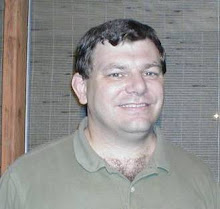While Laughlin certainly casts a critical eye on traditional beliefs, his tone is not derogatory or dismissive. In fact, unless s/he is particularly hyper-partisan, a conservative Christian should find the book's tone non-offensive, and would indeed find valuable content within, even while disagreeing with the author at points. The book is written as a textbook for undergraduate-level "Introduction to Christianity" classes, so it's accessible to non-specialists that have attended at least some college.
Anyway, the first chapter on The Bible in Historical Perspective covered material that was familiar to me from my academic background. However, having avoided the study of pure and systematic theology, the rest of the book was very eye-opening to me--particularly Chapter 2, "Christian Theism and Its Alternatives."
I had always had a problem with the traditional view of God--a separate being with a separate identity, inevitably male, theoretically loving of all creation but practicing love only for those on "his side." As a pastor, I explained away some of the more offensive commandments in the Hebrew Bible by saying that God was "meeting people where they were and nudging them toward the ideal of human equality." There's some validity to that statement, and the trend continues into the New Testament in my opinion. But something in the traditional view of God that made it difficult for that claim to make a lot of sense.
I had read books by writers such as Marcus Borg and John Dominic Crossan that seemed to have a healthier view of God, but I had not been able to get a handle on the relationship between these various theologies.
Laughlin hits the nail on the head by explaining that the various views of deity differ in two areas: transcendence and immanence. Transcendence refers to the "otherness" of God, while immanence refers to the nearness or "within-ness" of God. Thus there are four possibilities:
- Theism (active God above), the traditional view of God in monotheistic religions, involving high transcendence and a relatively weak immanence. God is separate from the universe and everything else, and is active to some degree in the world today.
- Deism (uninvolved God), well known as the theology of many of the U.S. founding fathers, involving high transcendance and no immanence. A separate God created the world, set it in motion, and then became uninvolved.
- Pantheism (everything is God), an element of many Eastern, Native American, and New Age spritualities, involving virtually no transcendence and very strong immanence. The spirit or concept of God infuses the universe as a whole; thus the universe is God. When this concept is used without reference to "God," it's called Monism.
- Panenthism (everything in God), espoused by Borg, Crossan, and other progressive Christian theologians, and involveing very strong immanence and a certain amount of transcendence. Panentheists agree with pantheists that God saturates and infuses the universe as a whole, but they see God as "the entire universe and then some." God is present everywhere and in everything, and also has another aspect that is untouched by the universe.
You might have guessed that I have gravitated to panentheism, now that I understand it more fully. Now I want to go back and read more of Borg and others, now that I have a "nail to hang them on." I'm also excited that our pastor, Peg Pfab, has agreed to teach a class delving more deeply into these concepts as a part of our adult education program this spring.
Among several books I'm reading now is another book by Laughlin, Getting Oriented: What Every Christian Should Know about Eastern Religions, but Probably Doesn't. It's a great read so far.
